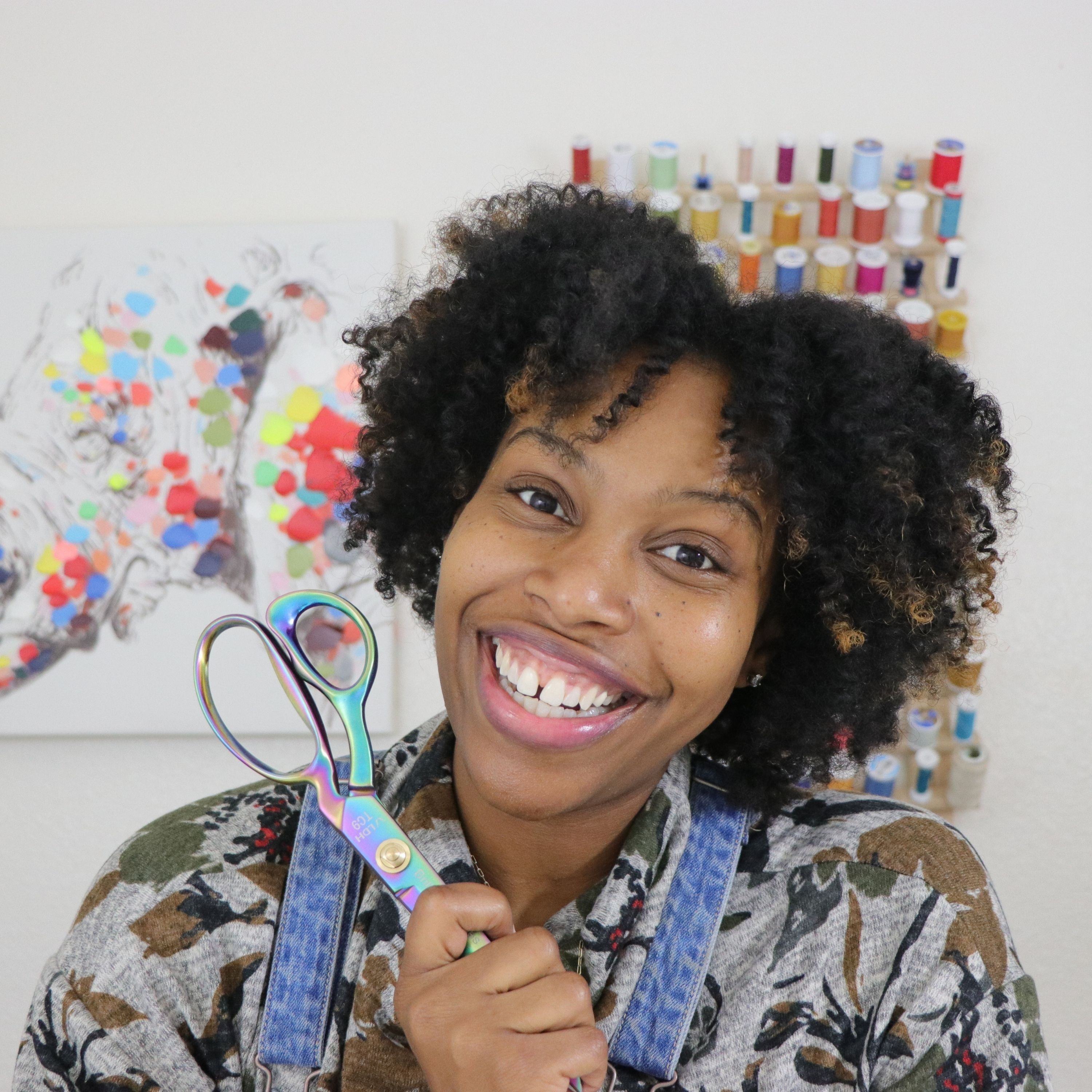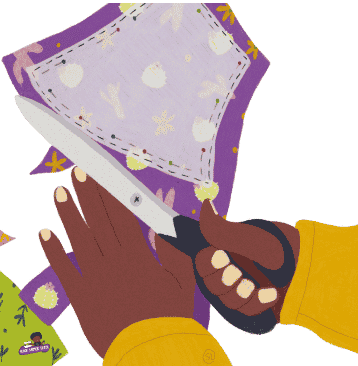Join the Black Women Stitch Patreon.
Olugbemisola Rhuday-Perkovich
Olugbemisola Rhuday-Perkovich is a crafter, a blogger, a sewist, and the author of several children’s books, including Operation Sisterhood, It Doesn’t Take A Genius, 8th Grade Superzero, Two Naomis, Saving Earth: Climate Change and the Fight For Our Future, as well as the picture book Someday Is Now: Clara Luper and the 1958 Oklahoma City Sit-Ins, and Mae Makes A Way: The True Story of Mae Reeves, Hat and History Maker. Her most recent release is The Sun Does Shine: An Innocent Man, A Wrongful Conviction, and the Long Path to Justice with Anthony Ray Hinton and Lara Love Hardin. She is the editor of the We Need Diverse Books anthology The Hero Next Door, and has contributed to several collections.
Lisa Woolfork
Lisa Woolfork is an associate professor of English, specializing in African American literature and culture. Her teaching and research explore Black women writers, Black identity, trauma theory and American slavery. She is the convener and founder of Black Women Stitch, the sewing group where Black lives matter. She is also the host/producer of Stitch Please, a weekly audio podcast that centers Black women, girls, and femmes in sewing. In the summer of 2017, she actively resisted the white supremacist marches in her community, Charlottesville Virginia. The city became a symbol of lethal resurging white supremacist violence. #Charlottesville. She remains active in a variety of university and community initiatives, including the Community Engaged Scholars program. She believes in the power of creative liberation.
Insights from this episode:
- Olugbemisola’s start of her sewing journey
- Olugbemisola’s childhood and growing up with black dolls
- How Olugbemisola is bringing dignity to black folks through her books and amplifying their voices
- Insights on affirming black women and how they can claim their space in the world
- The power of black creativity
- The connection between writing and sewing
- The process of narrating an audiobook
Quotes from the show:
- “When you make something yourself and put that creative energy into something, it makes it even more special” -Olugbemisola in “Stitch Please”
- “Dignity is not something you give, dignity is something you affirm. Everybody is born with dignity, everybody has it, but not everybody gets to have it affirmed” -Lisa Woolfork in “Stitch Please”
- “I think a lot of times the focus is on the struggle and the striving and not enough on just the beauty, creativity and the art” -Olugbemisola in “Stitch Please”
- “You have a relationship with every book or every story that you read, and it’s a very personal relationship” -Olugbemisola in “Stitch Please”
- “We are a people, and a people does not throw their geniuses away” -Lisa Woolfork in “Stitch Please”
- “Telling your own story and telling the story of your people and having those stories was just so important to me from a very young age” -Olugbemisola in “Stitch Please”
- “Be generous with yourself, be kind to yourself, do not feel that your process has to reflect anybody else’s ” -Olugbemisola in “Stitch Please”
Resources Mentioned:
In Search of Our Mothers’ Gardens
Stay Connected:
Lisa Woolfork
Instagram: Lisa Woolfork
Twitter: Lisa Woolfork
Olugbemisola Rhuday-Perkovich
Website: Olugbemisola Rhuday-Perkovich
Instagram: Olugbemisola Rhuday-Perkovich
Twitter: Olugbemisola
This episode was produced and managed by Podcast Laundry.
Sign up for the Black Women Stitch quarterly newsletter
Check out our merch here
Leave a BACKSTITCH message and tell us about your favorite episode.
Join the Black Women Stitch Patreon
Check out our Amazon Store
Stay Connected:
YouTube: Black Women Stitch
Instagram: Black Women Stitch
Facebook: Stitch Please Podcast



